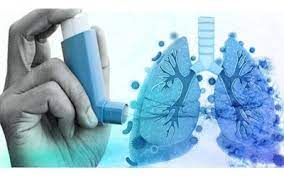
Asthma is a respiratory disorder that causes
recurrent attacks of breathing by blocking the airways.
The prevalence of this disease in children is
much higher than in adults, especially in boys. Although this disorder may
occur at any age. About 80% of people with asthma have their first attack by
their fifth birthday. Fortunately, the severity of most cases of childhood
asthma decreases over time, and in 25 to 50 percent of children with asthma,
when they reach adulthood, no signs of the disease are found.
People suffering from this disease suffer
from severe attacks or periods when air enters the lungs and difficulty in
breathing.
The
causative agents of asthma are irritants in the environment that can aggravate
the symptoms and attacks of the disease and usually differ from person to
person.
What causes asthma?
Twin studies and other genetic studies have
shown that heredity clearly plays a role in determining whether people develop
asthma. Research also shows evidence of a close relationship between genetic
factors, severity of the disease and personal history of respiratory infection.
Treatment diet for asthma:
The key to treating asthma is medical
treatment.
Asthma treatment regimen consists of three
parts:
First: Avoidance of known triggers that cause
attacks.
Second: It is related to drug use. To treat
an acute attack, patients mainly use bronchodilators or broncholytics that open
narrowed airways. It is one of the anti-inflammatory drugs (Cromolyn) that
reduces bronchial inflammation.
Third: exercise.
Many doctors recommend a treatment regimen
that includes a careful combination of exercise and medication.
The fact that asthma can cause disability and
sometimes death. It has made it important for patients to follow their
treatment regimen. Research has shown that those who follow their treatment
regimen have far fewer attacks and wheezing.